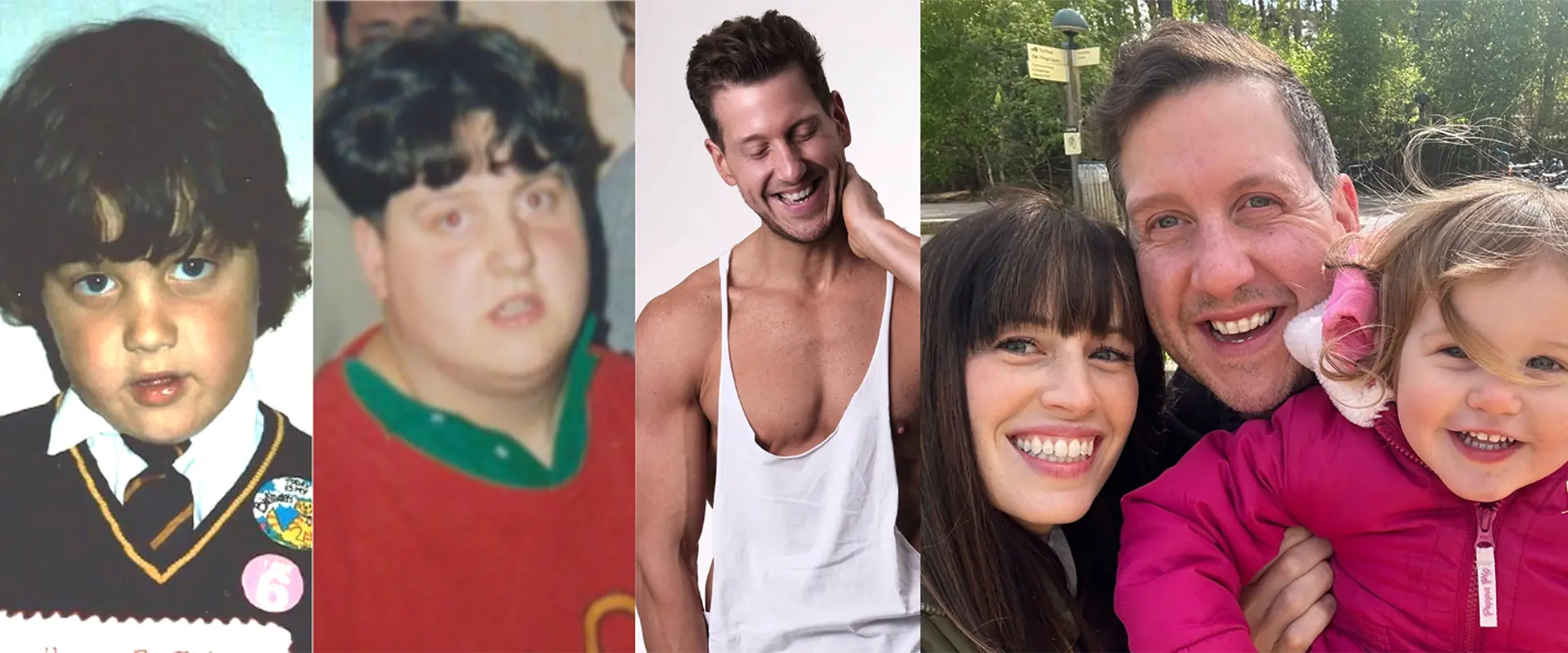Mental health affects many of us, and for some, it’s a lifelong battle. Anxiety, depression, paranoia, loneliness and even occasional feelings of suicide once defined my daily life. These struggles weren’t fleeting – they became deeply ingrained in my self-identity, especially during the years when I was morbidly obese. For me, food became a way to manage these intense emotions, creating a cycle of emotional eating that only deepened my sense of hopelessness.
At my heaviest, it wasn’t just my physical health that was suffering – my mental health was spiralling. The constant feelings of inadequacy, fear of rejection and the crushing weight of paranoia made it impossible to see a way out. I felt trapped and like many others in similar situations, food became my escape. Yet, as a life coach, I now know firsthand that it’s possible to turn the tide.
Mental Health and Its Link to Weight Gain
In today’s world, mental health issues affect more people than ever before. Conditions like anxiety, depression and paranoia often feed into weight gain and obesity. For me, this cycle started in childhood, where limiting beliefs about myself took root due to early frustrations, including a learning disability that left me feeling isolated and “different” from others. These feelings stayed with me into adulthood, leading to comfort eating as a way to cope with stress and isolation.
Many people who suffer from mental health conditions like these turn to food as a coping mechanism and the cycle is difficult to break. Food provided a temporary fix, but over time, it contributed to my increasing weight and made it harder to manage my emotions. The more I ate, the worse I felt, and the cycle continued.
Breaking the Cycle: Mental Health and Positive Thinking
For years, I struggled to control my weight, trying different diets without success. The key to turning my life around came when I decided to focus on my mental health first. As a life coach, I now understand that emotional eating and physical health are deeply intertwined with mental well-being.
I began working on myself from the inside out, turning to self-development and positive thinking. I attended workshops, read books and started to address the limiting beliefs that had kept me locked in my old patterns. Little by little, I chipped away at the emotional barriers that had built up over the years. I learned that you can’t just focus on losing weight – mental health is the foundation that supports any physical transformation.
When I began addressing the emotional triggers like paranoia, anxiety, and negative self-talk, the physical changes followed. With a clearer mind, I found it easier to make healthier food choices and commit to regular exercise.
Mental Health: An Ongoing Battle
Even though I’ve come a long way, I am always conscious of the fact that my anxiety, depression, paranoia, and the capacity to overeat still exist somewhere deep within me. In recent times, however, these destructive tendencies are kept at bay, below the surface. Anyone who has battled mental health issues and struggles with overeating will understand this. These feelings don’t disappear forever, but it’s about managing them and learning how to cope if they resurface.
Now, as a life coach, I work with clients to develop strategies for managing mental health alongside their physical health goals. It’s not about completely eliminating negative thoughts or emotional responses that lead to turning to food and drink. Instead, it’s about recognising the signs early and having the tools to prevent those emotions and behaviours from taking control.
The Connection Between Mental Health and Obesity
Mental health and obesity are deeply connected. When you’re suffering from conditions like depression or anxiety, it’s easy to fall into patterns of emotional eating or sedentary behaviour. The more weight you gain, the worse you feel and this often leads to deeper isolation and negative self-talk.
One of the hardest things for me was realising that to truly lose weight and keep it off, I needed to heal my mental health first. The limiting beliefs I had carried with me since childhood – the belief that I wasn’t good enough or capable of change were the real barriers to my success.
My Advice: Start with Your Mindset
If you are susceptible to mental health challenges and emotional eating, my biggest advice as a life coach is to start with your mindset. Weight loss and fitness aren’t just physical journeys – they’re mental and emotional ones too. If you’re struggling with conditions like anxiety, paranoia, low self-esteem or depression, addressing these should be your first priority. By focusing on the root of the problem through therapy, self-development, positive thinking and creating a supportive environment, you can begin healing from the inside out
Never Give Up
I know firsthand how challenging the journey to mental and physical health can be. But I’m living proof that change is possible. It wasn’t easy, and there were setbacks, but the key is to never give up. You have the power to take control of your mind, your body and your life. The first step is deciding to make a change and believing in yourself enough to see it through.
If you’re ready to take the first step toward improving your health, both mentally and physically, why not start with a Free 30-Minute Discovery Call? During this call, we’ll discuss your goals, challenges and how I can help you create sustainable habits that lead to lasting change.




